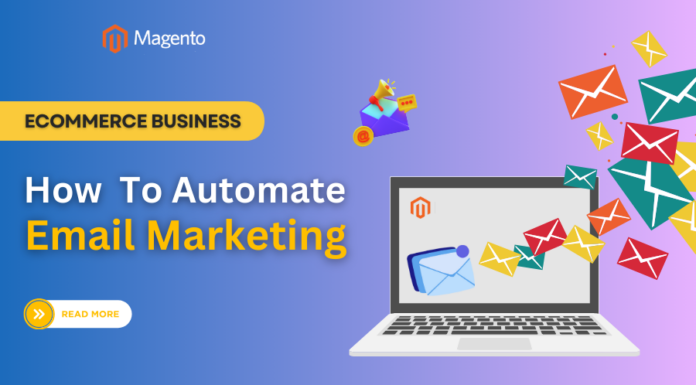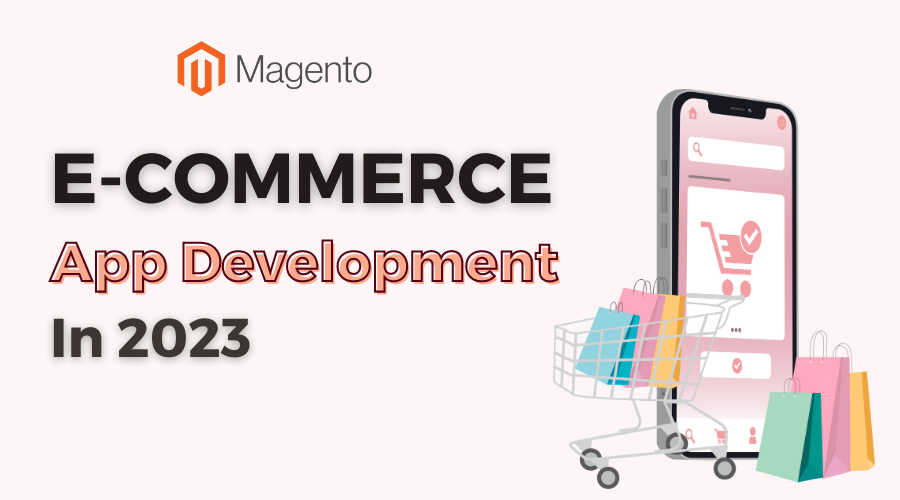
In today’s ever-evolving digital realm, establishing a robust online presence, especially through impeccable full stack development services, holds immense importance.
A compelling ecommerce app stands as one of the most effective means for businesses to flourish and prosper in this cutthroat era. This article delves into the relevance of ecommerce app development in 2024, expounding on its profound impact on business development.
Furthermore, it explores diverse triumphant ecommerce apps, examines the existing app categories, factors influencing ecommerce app cost, and showcases examples of cost evaluations for both simple and complex ecommerce apps.
Table of Contents
I. The Relevance of Crafting an Ecommerce App in 2024
In an age where online shopping reigns supreme, the creation of a well-crafted and user-friendly ecommerce app is pivotal for businesses seeking to expand their horizons and amplify sales.
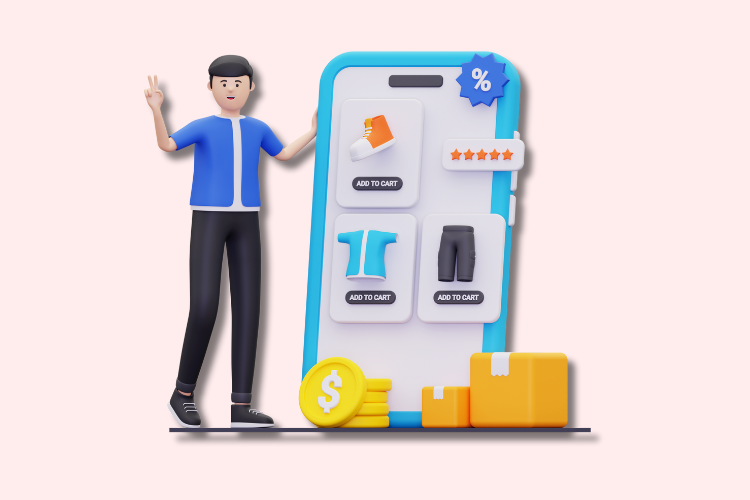
Let’s explore highlight reasons why developing an ecommerce app is vital in 2024:
- Broadening Customer Reach: An ecommerce app presents businesses with a golden opportunity to transcend geographical limitations and tap into a global customer base. The ever-increasing number of smartphone users across the globe makes an app an indispensable medium for reaching a vast audience and heightening brand visibility.
- Enhanced User Experience: A dedicated ecommerce app bestows a seamless and personalized user experience, enabling customers to effortlessly browse through products, make purchases, and track their orders. The convenience and accessibility offered by an app significantly bolster customer satisfaction and foster repeat business.
- Competitive Edge: In an intensely competitive market, an ecommerce app grants businesses a competitive advantage by offering distinctive features, exclusive discounts, and personalized recommendations. By delivering a superior shopping experience, businesses can stand out from the crowd and allure a devoted customer base.
II. Successful Ecommerce App Examples
Numerous ecommerce apps have garnered remarkable triumph in recent times. Let’s delve into a few noteworthy examples:
#1. Amazon: As one of the globe’s largest online retailers, Amazon’s ecommerce app provides an extensive range of products, user-friendly browsing options, personalized recommendations, and prompt delivery services.
#2. Alibaba: This Chinese multinational conglomerate has attained worldwide acclaim through its ecommerce app, which seamlessly connects businesses and consumers, facilitating international trade and emerging as a go-to platform for wholesale purchases.
#3. Shopify: Renowned for its intuitive interface and vast customization options, Shopify empowers businesses of all sizes to effortlessly create and manage their ecommerce stores. Offering an array of features encompassing payment integration, inventory management, and marketing tools, Shopify emerges as a game-changer.
III. Categories of Ecommerce Applications and Selecting the Ideal Type
When considering ecommerce app development, comprehending the various app categories is crucial. Here are some common types and their distinct attributes:
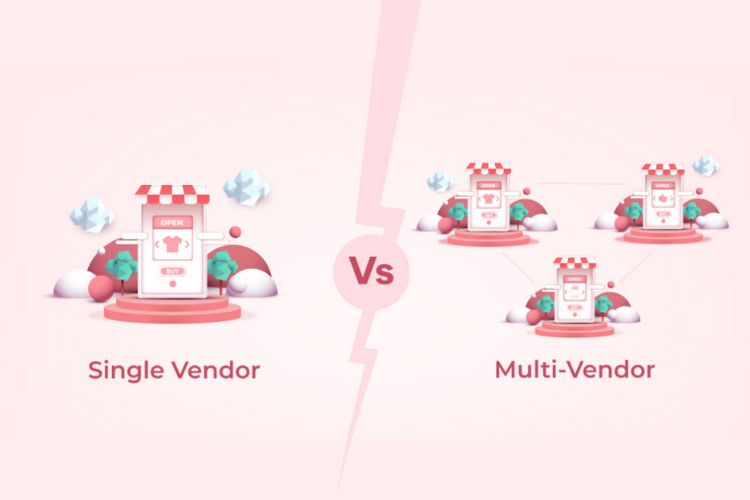
- Single Vendor Apps: Tailored for businesses exclusively selling their own products and services, these apps provide a direct avenue to showcase offerings and handle transactions.
- Multi-Vendor Marketplaces: These apps amalgamate multiple sellers, enabling them to establish individual stores within the platform. This comprehensive approach furnishes customers with an extensive array of products and services, augmenting choices and fostering healthy competition.
- Subscription-based Apps: By adhering to a subscription model, these apps grant customers exclusive access to premium content or services. This model finds popularity among businesses offering recurring services or premium content, such as media streaming platforms and online learning portals.
Selecting the most suitable ecommerce app type hinges upon factors such as the nature of your business, target audience, and long-term goals. Aligning unique requirements with the strengths and limitations of each app category is such pivotal.
IV. Factors Influencing E Commerce Application Development Costs
The development of an ecommerce app entails several factors that impact overall costs. Consider the following key considerations:
- Functionality: The complexity and range of features integrated into your app exert a significant influence on development costs. Advanced features like personalized recommendations, social media integration, and real-time chat support may necessitate additional development resources.
- Design: A visually captivating and user-friendly interface is paramount for the success of an ecommerce app. Investing in professional UI/UX design can elevate the user experience, but it may also contribute to overall costs.
- Integration: If you intend to integrate your app with third-party services, such as payment gateways, inventory management systems, or customer relationship management tools, additional development efforts and associated costs may arise.
V. Fees Encompassed in Ecommerce Application Setup
While the cost of ecommerce app development encompasses multiple aspects, it is vital to consider the fees associated with setting up the application. The following examples shed light on such fees:
- Icon and Splash Screen: Commissioning a professional designer to craft an appealing and memorable app icon and splash screen contributes to establishing a distinctive brand identity, entailing a separate fee.
- Server Infrastructure: Running an ecommerce app necessitates a robust server infrastructure to manage high traffic and ensure seamless operation. Costs related to server setup, hosting, and maintenance should be factored in.

To provide you with a better comprehension of cost implications, let’s consider two hypothetical scenarios:
- Simple Ecommerce App: A basic single-vendor app encompassing essential features such as product listings, a shopping cart, secure payment gateway, and order tracking may range from $10,000 to $20,000. The final cost depends on the complexity of design and functionality.
- Complex Ecommerce App: A multi-vendor marketplace app with advanced features like seller dashboards, customer reviews, push notifications, and sophisticated search algorithms may span from $30,000 to $50,000 or more, contingent upon specific requirements and customization.
V. Conclusion
In the fast-paced digital landscape of 2024, crafting an ecommerce app is not only relevant but also indispensable for businesses striving to thrive and expand. With the power to broaden customer reach, enhance user experiences, and gain a competitive edge, an ecommerce app serves as a catalyst for success across businesses of all scales.
By contemplating diverse ecommerce app categories, understanding factors influencing development costs, and delving into cost evaluations, businesses can make informed decisions and embark on a fruitful ecommerce app journey. Embrace the boundless possibilities of ecommerce app development and pave the path for exceptional business growth in the modern era.






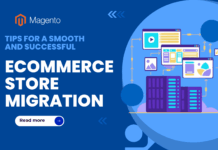

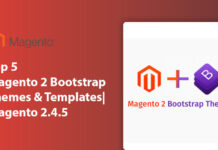



![[SALE OFF] Discount 30% All Premium Extensions On Christmas And New Year 2025 christmas-and-new-year-2025](https://landofcoder.b-cdn.net/wp-content/uploads/2024/12/christmas-and-new-year-2025-1-218x150.png)




